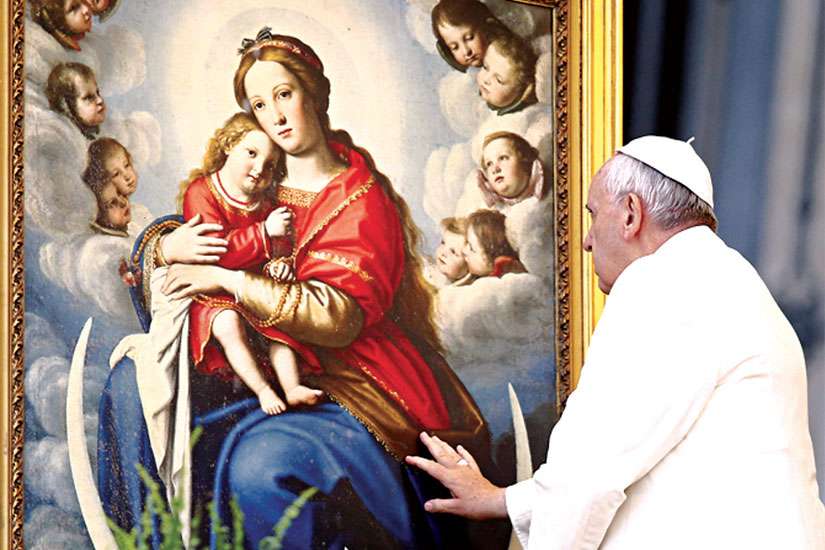Speaking on Sept. 13 to the Argentine radio station, FM Milenium, Francis lamented those who posed as his friends to exploit him, and decried religious fundamentalism.
And speaking to Portugal’s Radio Renascenca in an interview that aired Sept. 14, Francis put his own popularity into perspective: “Jesus also, for a certain time, was very popular, and look at how that turned out.”
Here are excerpts from the FM Milenium interview:
On false friends: “Friendship is something very sacred … But the utilitarian sense of friendship — to see what I can get out of being close to this person and making myself his friend — this pains me. I have felt used by some people who have presented themselves as ‘friends’ whom I may not have seen more than once or twice in my lifetime, and they used this for their own gain. But this is an experience which we have all undergone: utilitarian friendship.”
On religious fundamentalism: “In any confession there will be a small group of fundamentalists whose work is to destroy in the interests of an idea, not of a reality. Reality is superior to an idea. God, whether in Judaism, in Christianity or in Islam, in the faith of those three peoples, accompanies God’s people with His presence. In the Bible we see it, Muslims in the Quran. Our God is a God of nearness, which accompanies. Fundamentalists push God away from the companionship of His people; they dis-incarnate Him, they transform Him into an ideology. Therefore, in the name of this ideological God, they kill, attack, destroy and calumniate. Practically, they transform this God into a Baal, into an idol.”
Here are excerpts from an English translation of the Portuguese interview:
On playing it safe or taking risks: “Life without problems is dull. It’s boring. Man has, within him, the need to face and solve conflicts and problems. Obviously, an education to not have problems is an aseptic education. Try it: Take a glass of mineral water, common tap water, then take a glass of distilled water. It’s disgusting, but the distilled water doesn’t have problems (laughs) It’s like raising children in a lab, isn’t it? Please! … Run risks and always set goals!”
On his own immigrant history: “I am the son of emigrants and I belong to the emigration of 1929 (from Italy to Argentina) … It is true that, in those days there was work, but the ones from my family — who had jobs when they arrived in 1929 — by 1932, with the economic crisis of the ’30s, were out on the street, with nothing. My grandfather bought a warehouse with 2,000 pesos which he borrowed, and my father, who was an accountant, was selling goods out of a basket. So they had the will to fight, to succeed … I know about migration!”
On the need for the Catholic Church to change: “If somebody has a room in his house which is closed for long periods, it develops humidity, and a bad smell. If a Church, a parish, a diocese or an institute lives closed in on itself, it grows ill … and we are left with a scrawny Church, with strict rules, no creativity. Safe, more than safe, insured by an insurance agency, but not safe! On the contrary — if it goes forth — if a Church and a parish go out into the world, then once outside they might suffer the same fate as anybody else who goes out: have an accident. Well, in that case, between a sick and a bruised Church, I prefer the bruised, because at least it went into the street.”
On why he streamlined the annulment process: “(T)o simplify … Ease people’s faith. And that the Church might be like a mother.”
On his own popularity: “I often ask myself what my cross will be like, what my cross is like … Crosses exist. You can’t see them, but they are there. Jesus also, for a certain time, was very popular, and look at how that turned out.”
On trying to break out of the papal bubble: “Yes, I need to get out, but it’s still not quite time … But little by little I have some contact with people on Wednesdays (at the public general audience in St. Peter’s Square) and that helps me a lot. What I miss most about Buenos Aires is going out and walking in the street.”


